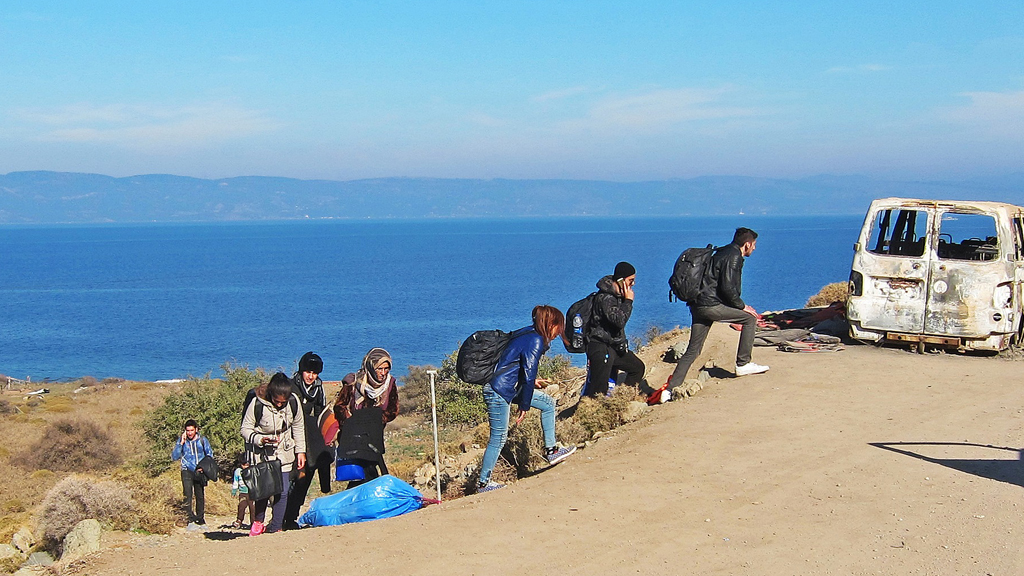Understanding the Refugee Arrival Process

0%
Many refugees who come to Canada have lived in refugee camps for years, even decades.
LIP
Refugees are people who have left their country due to violence, war, conflict or persecution. If they remain in their homes, they risk their lives. According to the United Nations High Commissioner for Refugees (UNHCR), there are about 26.4 million refugees worldwide. In 2019, Canada welcomed 30,000 resettled refugees.
This amount will rise as Canada opens its border to more refugees in the upcoming years.
Two main programs are in place:
The Refugee and Humanitarian Resettlement Program is for people who need protection from outside Canada; and
The In-Canada Asylum Program for people making refugee protection claims from within Canada.
Refugee and Humanitarian Resettlement Program
Many refugees who come through this program have lived in refugee camps for years, even decades. The United Nations Refugee Agency (UNHCR) or private sponsors identify these refugees for resettlement in Canada. Once identified, their cases must be processed and evaluated. This may take a long time.
Within this program, there are Government Sponsored Refugees (GARs), who come through the federal sponsorship program known as the Resettlement Assistance Program (RAP), through which refugees are sponsored directly by the government.
Once a refugee is identified, a Canadian visa officer reviews their case. This ensures that they have not committed serious crimes in the past, that they are not a safety or security risk to Canada, and that no identity fraud has been committed. They must also go through a medical exam and give their biometric information, including fingerprints and a digital photo.
Then they must wait for approval or denial, which takes months to years. Refugees can check on the processing time. Once approved, they come to Canada and are granted certain rights, responsibilities, restrictions and privileged.
There are also Privately Sponsored Refugees (PSRs) within this overall program. These refugees are sponsored and supported by groups, organizations or individuals and are usually identified through friends, community members, the media, relatives or overseas contacts and organizations. They are approved outside of Canada by Canadian visa officers, and they become permanent residents upon arrival in Canada.
The Blended Visa Office-Referred Refugees (BVORs) matches a refugee identified by the UNHCR to private sponsors. They are usually travel-ready and arrive in Canada within one to four months. The Government does provide up to six months of income support through the Resettlement Assistance Program, while the private sponsors provide an additional six months of financial support and up to a year of social and emotional support.
All refugees must be screened several times and are rigorously investigated by the Canadian Security Intelligence Service (CSIS). This includes refugee identification before referral to the government, immigration and security interview by visa officers, identity and document verification, a health screening, and identity confirmation before departure.
Becoming a Private Sponsor
Private sponsors usually consist of religious, ethnic, community or humanitarian groups.
When they decide to sponsor a refugee or family of refugees, they enter into an agreement with the government and sign sponsorship agreements.
There are three major categories of private sponsors:
Groups of Five (G5), which, as the name suggests, are five or more Canadian citizens or permanent residents.
Community Sponsors, which are organizations, associations or corporations getting together to sponsor a refugee; and
Sponsorship Agreement Holders (SAHs) are incorporated organizations that have signed an agreement with Immigration, Refugees and Citizenship Canada (IRCC) and assume overall responsibility for managing sponsorships.
Private sponsors are responsible for each refugee in their agreement and have financial and legal responsibilities.
According to the Government of Canada website, they must:
Be based in, or have representatives in, the community where they resettle refugees;
Oversee all sponsorships under their agreement, even if CGs or co-sponsors are participating;
Ensure the sponsored refugees have what they need to live safely and independently in Canada; and
Participate in ongoing training to stay up to date on program requirements.
As part of their responsibilities, they must be ready to:
Financially support refugees during their sponsorship;
Provide settlement services to sponsored refugees, including helping them adjust to life in their new community; and
Oversee any co-sponsors, community groups or volunteers you choose to work with.
The first step is to submit a refugee sponsorship application package to Immigration, Refugees and Citizenship Canada (IRCC). They then enter into the agreement mentioned above.
Private sponsors are responsible for:
Associated start-up costs;
Need to give up to six months of financial support;
Need to give up to 1 year of social and emotional support; and
Don’t need to cover the cost of BVOR refugees’ health care as they get temporary health care benefits through the Interim Federal Health Program (IFHP) until they become eligible for provincial or territorial health insurance.
In-Canada Asylum Program
To claim asylum, a refugee must be on Canadian soil. Not everybody is eligible to seek asylum. They will be denied if they have been convicted of a serious criminal offence or had previously denied refugee claims by Canada. They must also have a well-founded fear of persecution or be at risk of torture, death or cruel or unusual punishment in their home country.
What help is available for resettled refugees?
Under the Resettlement Assistance Program (RAP), the Government of Canada or the Province of Quebec helps government-assisted refugees with essential services and income support once they are in Canada.
This income support is offered for one year or until they can support themselves, whichever comes first. The funds they receive are exactly on par with the social assistance rates offered to Canadians. According to the Ontario Works guideline, a single person could receive up to $733 per month in Renfrew County and Lanark County.
The RAP provides certain services to refugees for the first four to six weeks. This includes welcoming them at the airport or other port of entry, helping to find a temporary place to live, helping to find a permanent place to live, assessing their needs, information and help to get to know Canada, and providing referrals to other federal and provincial programs, and other settlement services.
Sponsors, however, must provide financial and emotional support for the length of the sponsorship period or until the refugee can support themselves. This is usually one year but can be for up to three.



